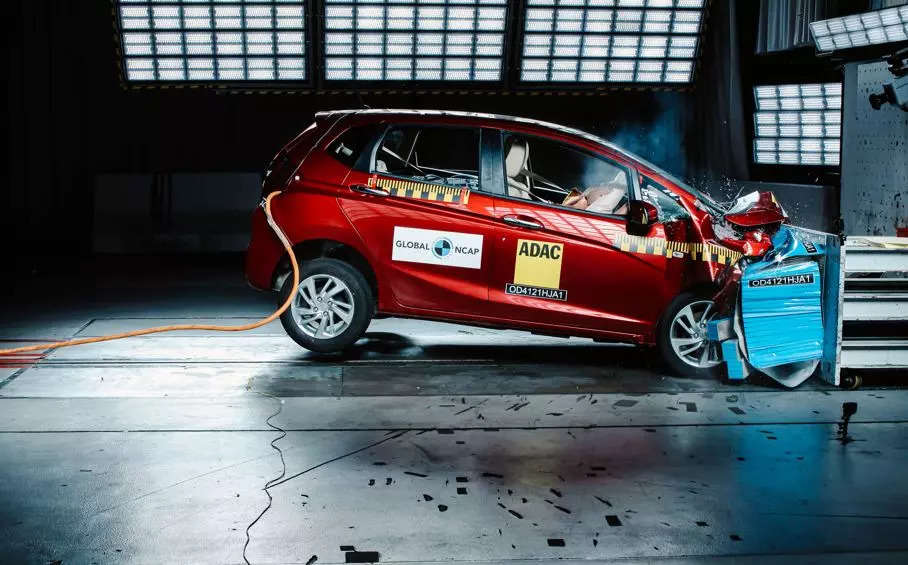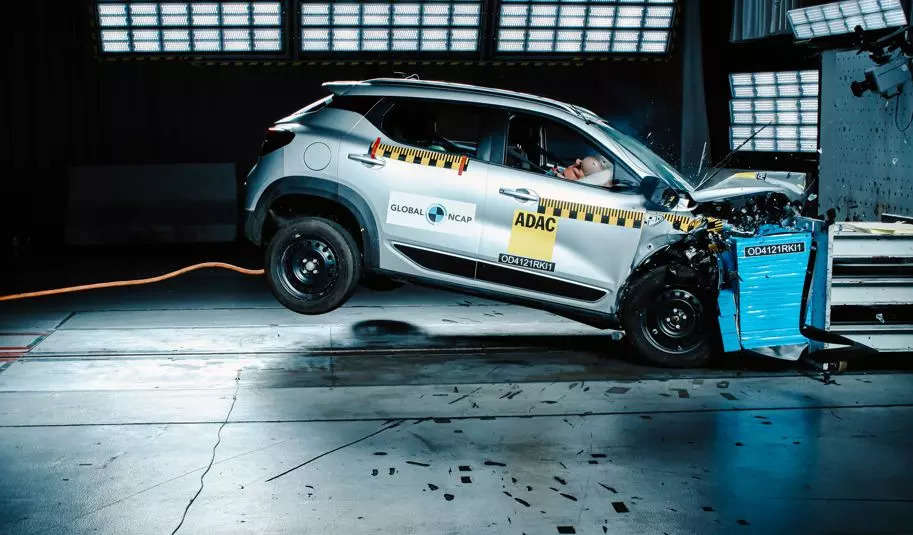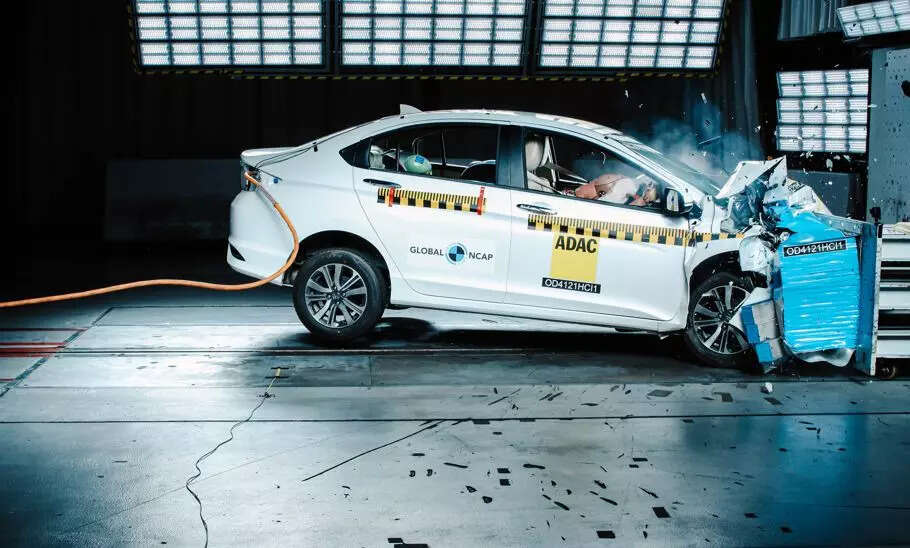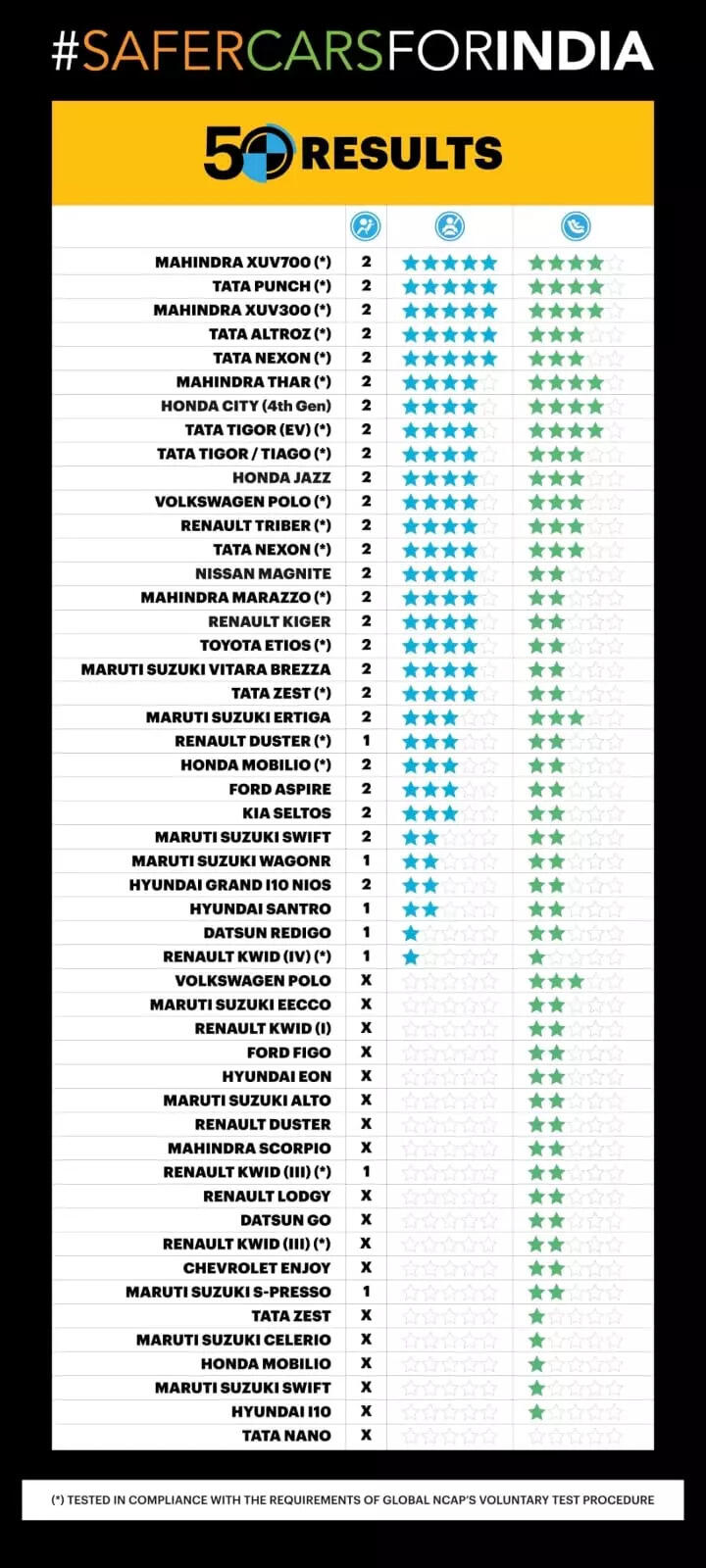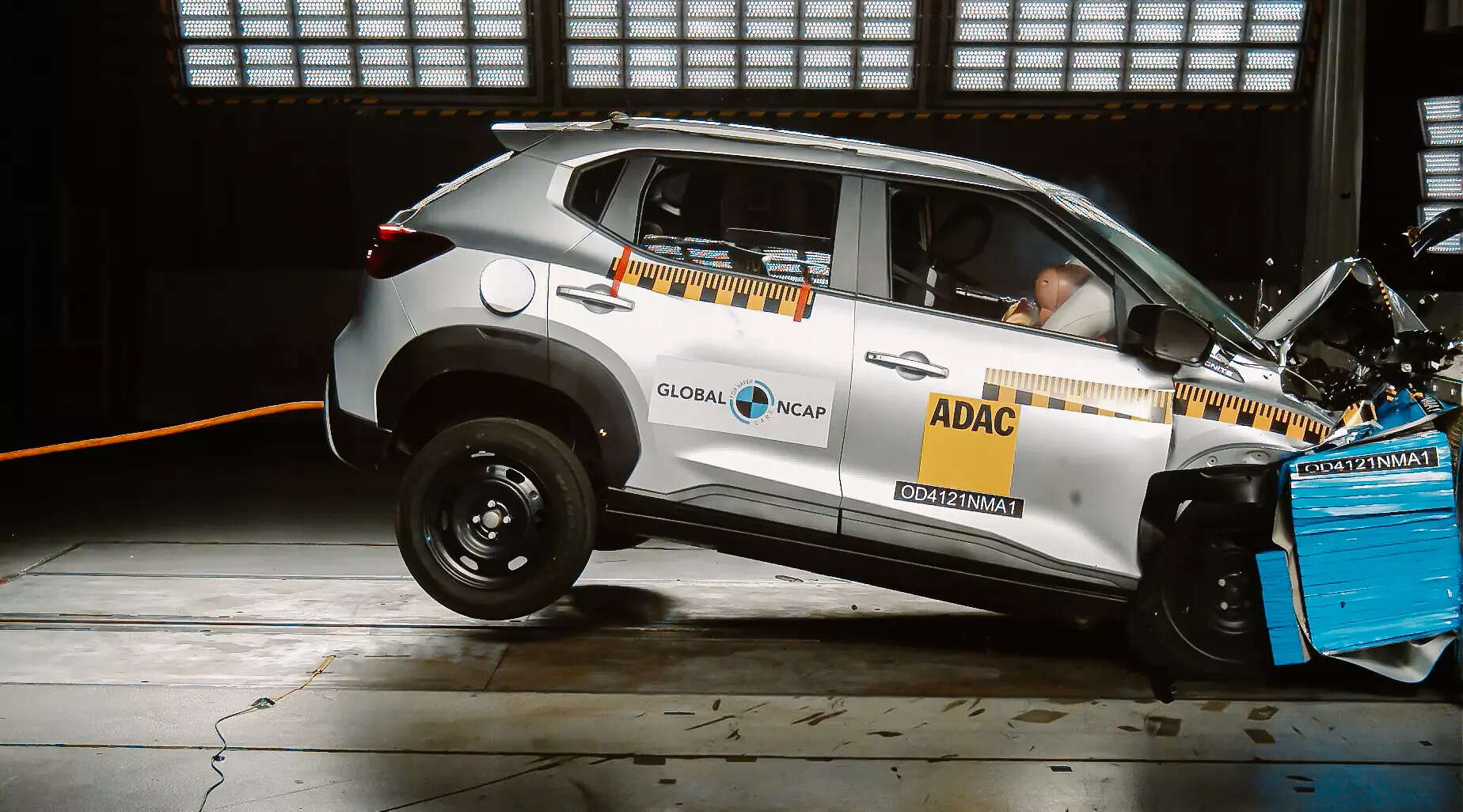
Four models from India, Honda’s City and Jazz, Nissan Magnite, and Renault Kiger, were crashed in the latest round of global safety watchdog Global New Car Assessment Programme’s (GlobalNCAP) test, under its Safer Cars for India campaign. The Nissan Magnite and Renault Kiger scored four stars for adult and two for child occupant protection. The identical rating is not surprising as the models from alliance partner Renault and Nissan share the same CMFA+ platform.
Honda’s Jazz achieved four stars for adult and three stars for child occupant protection, while its bestseller in India, Honda City, (4th Gen) achieved four stars for adult and child occupant protection.
With the latest round of tests, Global reached the milestone of testing 50 models from the Indian market. “There has been significant progress on vehicle safety design since we began our tests in 2014 but, as we see from our latest results, there is still more to be done to achieve the high safety standards that consumers in India rightly demand,” said Alejandro Furas, Global NCAP Secretary General, Global NCAP.
David Ward, President of the Towards Zero Foundation said, “As we pass the Safer Cars for India fiftieth test milestone, it’s important to recognise the progress that has been made.”
The tested variant of all four models was the most basic safety specced, offering two frontal airbags and ABS as standard fitment.
Tester’s notes:
Nissan Magnite (2 airbags) – During the assessment the model showed a stable structure and marginal protection to the driver’s chest. Surprisingly, the model is still being sold with a lap-belt in the rear centre seat instead of three point belts, without ISOFIX anchorages for the Child Restraint Systems (CRS). There is no Electronic Stability Control (ESC) and no side head impact protection as standard.
Renault Kiger (2 airbags) –During the assessment it showed an unstable structure and marginal protection to the driver’s chest. The model offers ISOFIX anchorages but they are not visible to the consumer, they were covered by the seat fabric. This model is offered with a lap-belt in the rear centre seat, without ESC and side head impact protection as standard.
Commenting on the latest test result, Venkatram Mamillapalle, Country CEO & Managing Director, Renault India Operations said, “This is a proud moment for Renault in India, as Kiger was developed and produced in India, for Indian customers first, before we took it to the world. The 4-Star rating by GNCAP reiterates our commitment to bringing technologically advanced products which are safe yet trendy.”
Honda Jazz (2 airbags) – During the assessment it showed a stable structure. The Jazz does not have ISOFIX anchorages and for this reason the CRS were tested using the adult seatbelts. Honda decided to install both child dummies in a rearward facing position following global best practice. This model is offered with a lap-belt in the rear centre seat, without ESC and side head impact protection as standard.
Honda City (4th Gen) – The Honda City also had ISOFIX anchorages as standard. During the assessment it showed an unstable structure and footwell area, good child occupant protection thanks to the ISOFIX anchorages and the rearward facing position of one of the child dummies. This model is offered with a lap-belt in the rear centre seat, without ESC and side head impact protection as standard.
With the latest round of tests, GNCAP has reached the milestone of testing 50 cars from India. The latest results also reflect the progression in safety levels of vehicles in the Indian market, driven mainly by government regulations. The first set of tests, conducted in 2014, included five models — Tata Nano, Datsun Go, Maruti Suzuki Swift, Hyundai i10, Volkswagen Polo. Here’s the full list of the 50 cars tested so far, and their results.
The Safer Cars for India campaign is expected to continue for another year at least. Another test under this campaign may not be too far away.
Also Read:



